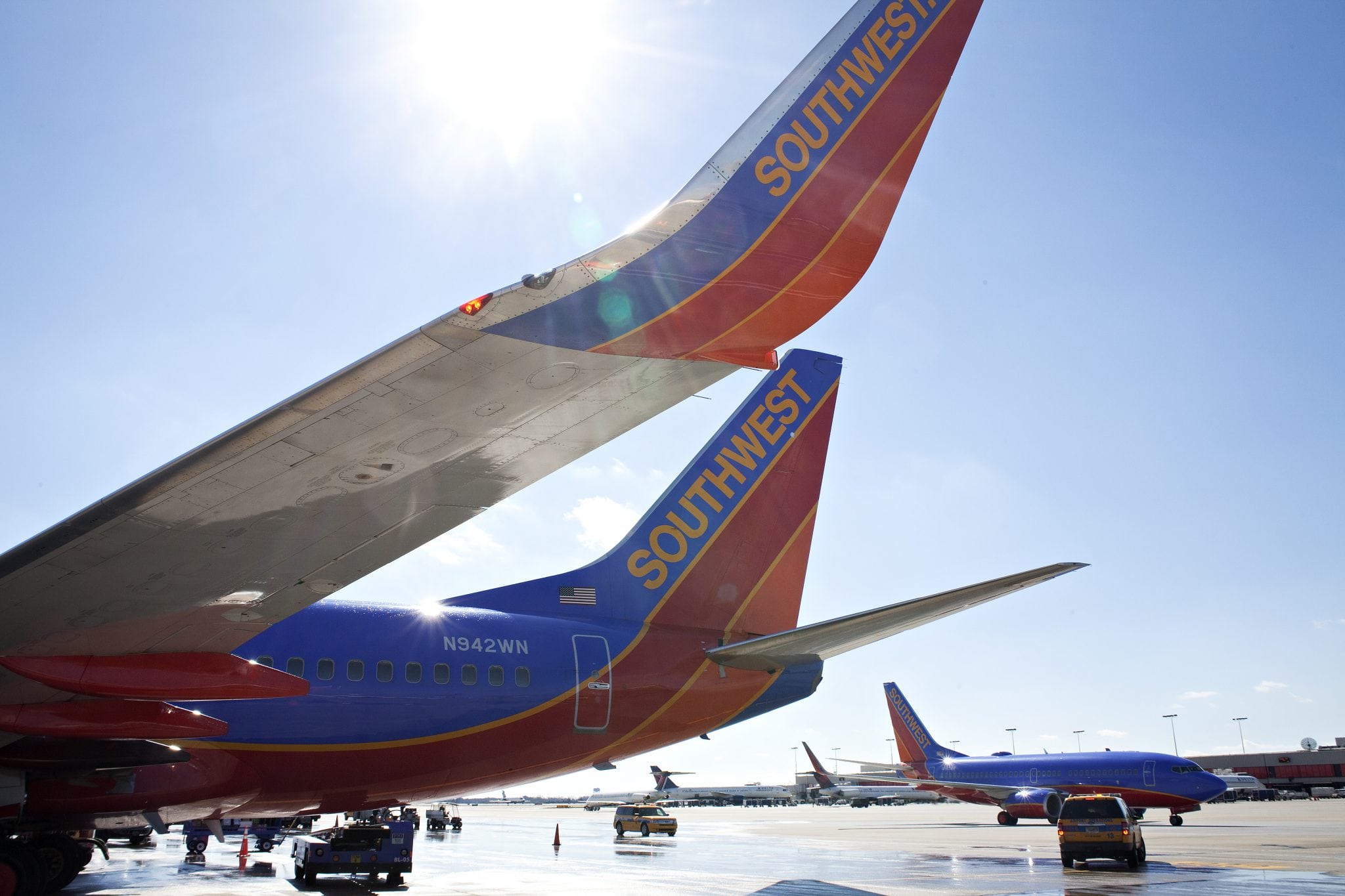
(Southwest Airlines)
A re-authorization bill for the FAA that will secure nearly $90 billion in funding over five years for the agency passed in the U.S. House of Representatives by a margin of 398-to-23 Wednesday. The bill must be passed in the Senate before the end of the month to prevent the FAA from shutting down.
Highlights of the bill, which has been negotiated and agreed to by both the House and the Senate, include direction on supersonic aircraft regulation and drones. Notable sections that were cut ahead of the final version include sought-after legislation to privatize air traffic management and the prohibition of “unreasonable” fees by airlines, where only small pieces of the original amendments made the final bill.
“Not only does it provide FAA programs with stability and certainty for the next five years, its numerous reforms will allow America’s aviation industry to continue to safely innovate, thrive and lead,” said Rep. Bill Shuster of Pennsylvania, chairman of the Transportation and Infrastructure Committee, in a statement.
Congressional mandates in the bill include a requirement that the FAA “exercise leadership in the creation of Federal and international policies … relating to the certification of safe and efficient operation of civil supersonic aircraft.”
The act provides a deadline of one year from its implementation for the FAA to report back on its actions and a timeline for updated policies surrounding supersonic aircraft. Currently, civil supersonic flight is prohibited in the U.S. because of the disturbance caused by sonic booms. However, newer technologies could mitigate those booms enough to open back up the possibility of attractive supersonic transportation.
To that end, Congress is demanding that the FAA consult with industry over the next year on the best way to regulate supersonic flight. The integration of supersonic flight would require changes in regulation, ATM and technology advancement, but airlines and manufacturers are excited about the additional segments and routes that it could open as air travel is expected to increase.
Regulating drones has been a thorny issue for some time. H.R. Bill 4 is primarily concerned with two issues: unmanned traffic management and privacy. The bill directs the FAA to focus on the integration of drones into the airspace and find a way for cargo drones to be certified more quickly to aid the drone delivery industry.
On the other hand, Congress wants model aircraft enthusiast operating under Section 336 to register their devices and take tests before flight, a decision which has led the Academy of Model Aeronautics to come out against the bill. Interim Executive Director Chad Budreau said it “could further restrict AMA’s STEM programs, shut down our AMA flying sites and have a negative impact on our hobby in general.”
Congress also asked the FAA to detail a plan to address privacy concerns. Lawmakers have expressed concern over citizens’ privacy being infringed on by drones with cameras flying around as well as how the information gathered by drones can be used.
There was a big effort to include an amendment to corporatize air traffic control in the bill, mainly removing ATM from the FAA’s jurisdiction, but it did not ultimately make it into the final version. There is, however, a provision that requires the FAA to “establish a pilot program to provide air traffic control services on a preferential basis to aircraft equipped with certain NextGen avionics” that lasts at least two years and operates in at least three airports. The program would need to operate for at least three hours per day and provide operators with the appropriate equipment a shorter ground delay and prioritized sequencing in the traffic flow management system during those hours.
Another provision that made it in that could affect commercial flight is the requirement that the FAA set minimum standards for seat size and pitch on airliners. Up until now, the agency has been hesitant to weigh in on the matter, calling it an issue of comfort rather than safety, but Congress is insisting that the ever-shrinking seats are a danger in emergency situations and demanding that the FAA, within a year, issue safety regulations. Beyond that, airlines will no longer be able to arbitrarily bump passengers from overbooked flights under the bill.
Airlines are, however, still free to charge fees as they see fit. An amendment championed by Massachusetts Democrat Sen. Markey aimed at curbing “unreasonable” fees on airline fares lacked what he called the “political willpower” to make it to the final version and was struck at the “eleventh hour.”
The FAA’s current authority expires Sept. 30, 2018; to keep the agency from shutting down, the Senate would need to pass the same bill before then or Congress would have to pass an extension to provide Senators additional time. Either is possible as this version of the bill is expected to be agreeable to both legislative bodies and both parties.